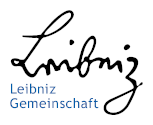- Das Institut
- Forschung
- Diktaturen im 20. Jahrhundert
- Demokratien und ihr historisches Selbstverständnis
- Transformationen in der neuesten Zeitgeschichte
- Internationale und transnationale Beziehungen
- Editionen
- Dissertationsprojekte
- Abgeschlossene Projekte
- Dokumentation Obersalzberg
- Zentrum für Holocaust-Studien
- Berliner Kolleg Kalter Krieg
- Publikationen
- Vierteljahrshefte
- Archiv
- Bibliothek
- Zentrum für Holocaust-Studien
- Aktuelles
- Termine
- Presse
- Neuerscheinungen
- Aus dem Institut
- Themen
- München 1972
- Confronting Decline
- Demokratie. Versprechen - Visionen - Vermessungen.
- Feministin, Pazifistin, Provokateurin
- Der Mauerbau als Audiowalk
- Digitale Zeitgeschichte
- Zeitgeschichte Open
- Der FC Bayern München und der Nationalsozialismus
- Das Deutsche Verkehrswesen
- Zukünfte am Ende des Kalten Krieges
- Von der Reichsbank zur Bundesbank
- Bundeskanzleramt
- Geschichte der Nachhaltigkeit(en)
- Wandel der Arbeit
- Demokratische Kultur und NS-Vergangenheit
- Geschichte der Treuhandanstalt
- Akten zur Auswärtigen Politik
- Dokumentation Obersalzberg
- Edition "Mein Kampf"
- Anonyma - Vom Tagebuch zum Bestseller
- "Man hört, man spricht"
- Newsletter
Demokratie. Versprechen – Visionen – Vermessungen
The surge which has occurred over the last decades in historical writing on democracy has greatly increased our understanding of the ideological, social and institutional contours of the democratic project which came to the fore in Western Europe after 1945. However, the issue of gender has not been a prominent feature of this work. The emergence of women as active citizens during the second half of the twentieth century is often cited as a demonstration of the wider construction of a democratic society. But throughout the century democracy was primarily a regime of political men. In terms of institutional leadership, membership of associational structures, and the wider languages and practices of democracy, it was men who had the dominant role. Men were citizens; and defined their gendered identity through their engagement in the practices of political life. The purpose of this lecture is therefore to analyse the ways in which the practice of twentieth-century democracy always remained inseparable from masculinity.
Lecture by Martin Conway, University of Oxford. Moderation: Samuel Miner, Leibniz Institute for Contemporary History
The event is part of our lecture series "Demokratie. Versprechen − Visionen − Vermessungen".
LOCATION
Leibniz Institute for Contemporary History
Leonrodstraße 46 b
80636 München
REGISTRATION for on-site participation
Phone (089) 1 26 88 - 0
muenchen[at]ifz-muenchen.de
Deadline: May 23
STREAMING via ZOOM webinar
The lecture will be streamed live and recorded. You can participate in the discussion afterwards through the audience chat.
Dial-in link for the Zoom webinar: https://zoom.us/j/99767905318?pwd=SG0wcXVoNldjU3JXclMvYnFiWXBndz09
Webinar-ID: 997 6790 5318
Code: 876459
We would like to inform you that video and sound recordings will be made at our events, which we will use for public relations purposes. If you do not wish to be photographed, please feel free to contact us.




